After a bruising GOP presidential primary, in May 2016 Donald Trump released a list of potential Supreme Court nominees to reassure conservative voters that the presumptive Republican nominee—a former Hillary Clinton donor who once mused about putting his liberal sister on the high court—would nominate judicial conservatives.
None of the people on Trump’s original list were ever nominated, and only one Supreme Court appointee, Neil Gorsuch, was added to the list before Trump was elected. But the list did serve the purpose of reassuring conservatives who backed Sen. Ted Cruz in the 2016 primary that Trump’s picks would be vetted by groups like the Federalist Society and Heritage Foundation.
In May of this year, Trump said he would be releasing an updated Supreme Court list, but six weeks later, the Trump campaign won’t say when—or whether—it will be released. “I will be putting out a Supreme Court list,” the former president told radio host Hugh Hewitt on May 15. But Trump campaign spokesman Steven Cheung told The Dispatch in a text message last week: “I can’t get ahead of any potential announcement that we may or may not have.”
Two of the four GOP senators added to Trump’s Supreme Court short list in 2020, Sen. Mike Lee of Utah and Sen. Josh Hawley of Missouri, told The Dispatch they haven’t been apprised about when an updated list might be released or who might be on it. “I have not heard about that,” Hawley said in the Capitol last week. “I haven’t. I have no idea,” said Lee. Lindsey Graham, the ranking Republican on the Senate Judiciary Committee, expects Trump to release a list, but he didn’t provide any details. “I would think so, I think that’s sort of what he has in mind,” Graham told The Dispatch. Who would Graham like to see on the list? “I’ll talk to [Trump] first,” he replied.
The last revisions to Trump’s previous lists in 2016 and 2020 weren’t released until September of each year, so one shouldn’t read too much into the fact that the campaign hasn’t released a list yet. A quick look at the September 2020 list suggests that there’s much work to do if Trump is serious about highlighting a new crop of plausible picks. A key factor for any nominee will be his or her relative youth—just look at the ages of Trump’s three appointees at the time they were confirmed: Barrett (48), Kavanaugh (53), Gorsuch (49). But most of the plausible appointees now serving as federal judges who were on the 2020 list are now within a few years of turning 60: Raymond Kethledge, Thomas Hardiman, Barbara Lagoa, Allison Eid, Don Willett.
It’s also true that Trump’s successful campaign tactic from 2016—something no other presidential candidate has ever done—could be politically trickier in 2024. For example, if Hawley, who is only 44 years old, is named on Trump’s list again he’d have to contend with the scrutiny over helping lead the charge in the Senate objecting to the counting of some Electoral College votes on January 6, 2021. But Hawley insists he would not accept a Supreme Court nomination. “I would say no, absolutely,” Hawley told The Dispatch. “If I wanted that job, I wouldn’t be running for this job,” added Hawley, who is running for reelection this year. His Senate colleague Lee, age 53, simply shrugged when asked if he’d like to be on the list again: “I’ve got the job I want.”
Hawley touted 51-year-old 5th U.S. Circuit Court of Appeals Judge James Ho, who was named on Trump’s 2020 list, as a potential Trump nominee. “I think Jim Ho has done a terrific job on the 5th [Circuit] and would just be tremendous, tremendous,” Hawley told The Dispatch. “I think he’s principled, I think he’s tough. I think he will be immune to the Greenhouse effect.” But Trump is very skittish of the politics of abortion, and Ho wanted to issue a ruling last year that the FDA’s original approval of the abortion drug mifepristone in 2000 was likely illegal. (The 5th Circuit ruled that the statute of limitations prohibited a challenge to the 2000 approval, but also ruled 2016 and 2021 regulations loosening distribution of the drug could be challenged and were likely illegal. Last week, the Supreme Court unanimously reversed the 5th Circuit’s ruling about the 2016 and 2021 regulations on the grounds that the pro-life doctors challenging the drug’s approval lacked legal standing to sue the FDA.)
When it comes to creating a new list of Supreme Court nominees, Trump could be cross-pressured by electoral politics and his personal grievances. He has expressed anger at the Supreme Court for refusing to take up his lawsuits challenging the results of the 2020 election. When his three Supreme Court appointees were part of a 2022 majority opinion allowing Congress to access his tax records, Trump posted on Truth Social: “Why would anybody be surprised that the Supreme Court has ruled against me, they always do! … The Supreme Court has lost its honor, prestige, and standing, & has become nothing more than a political body, with our Country paying the price. They refused to even look at the Election Hoax of 2020. Shame on them!” Depending on the outcome of the presidential immunity case this week, Trump could further sour on nominees in the mold of Gorsuch, Kavanaugh, and Barrett.
The New York Times reported in 2023 that first-term Trump advisers who didn’t break with the former president over January 6, including Stephen Miller and Russell Vought, were seeking a more aggressive brand of lawyer in a second Trump term. “The Federalist Society doesn’t know what time it is,” Vought told the Times. But even if Trump wants a more aggressive or unconventional Supreme Court nominee, it’s doubtful there is political upside for him to advertise that fact in the general election. Whereas Trump was worried about conservative Cruz primary voters in 2016, moderate Nikki Haley voters who are more of a problem for him this time could be turned off by a list of anti-establishment picks in 2024.
President Joe Biden certainly thinks the Supreme Court presents a political opportunity—even if Trump sticks to mainstream conservative nominees. He recently said in an interview with comedian Jimmy Kimmel that “one of the scariest parts” of a potential second Trump term is appointing new justices in the mold of Justice Samuel Alito (a George W. Bush appointee). “The Supreme Court has never been as out of kilter as it is today,” Biden said. If Trump is elected again, “he’s going to appoint two more flying flags upside down,” he added, referring to the recent controversy over the January 2021 actions of Justice Alito’s wife.
When it comes to confirming Supreme Court nominees (as well as Cabinet officials), Trump could have a difficult time getting a majority of the Senate to vote for nominees seen as too unconventional or extreme. Republicans might have only 50 to 52 Senate seats in 2025, including Susan Collins of Maine and Lisa Murkowski of Alaska, neither of whom voted for all of Trump’s Supreme Court nominees in his first term. Sen. Bill Cassidy of Louisiana, like Collins and Murkowski, voted to convict Trump in his second impeachment trial. Indiana Sen. Todd Young did not vote to convict but strongly criticized Trump and is refusing to support him in 2024.
Louisiana Sen. John Kennedy, who sits on the Judiciary Committee, told The Dispatch that releasing a Supreme Court list “was smart in 2016. I think it was one of the things that got him elected.” Kennedy said he’d like “people on the bench who don’t try to be legislators with robes.” But does he think Trump will actually release a 2024 Supreme Court list? “I have no idea,” Kennedy replied.
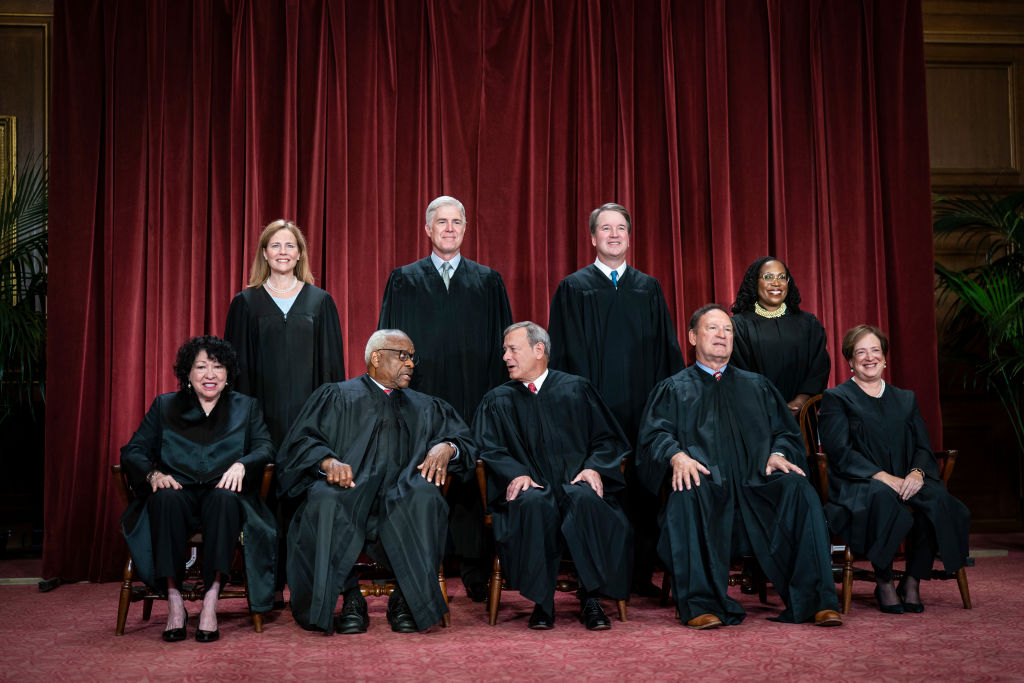

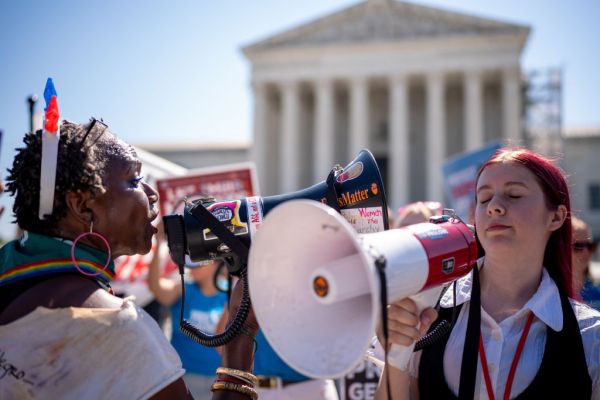
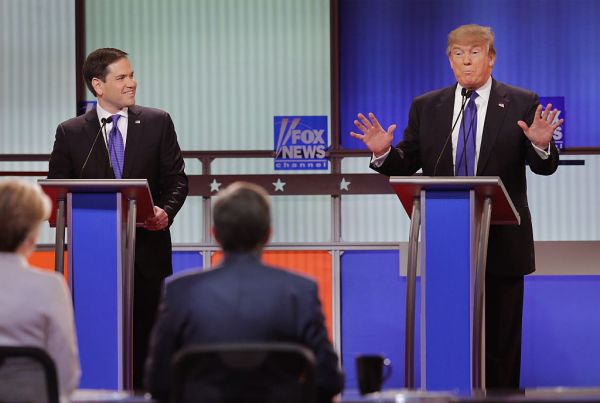
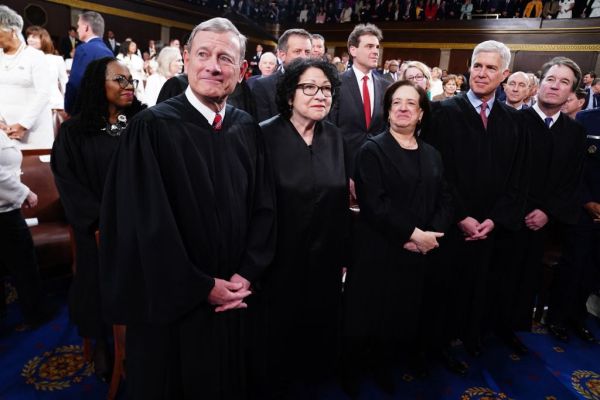

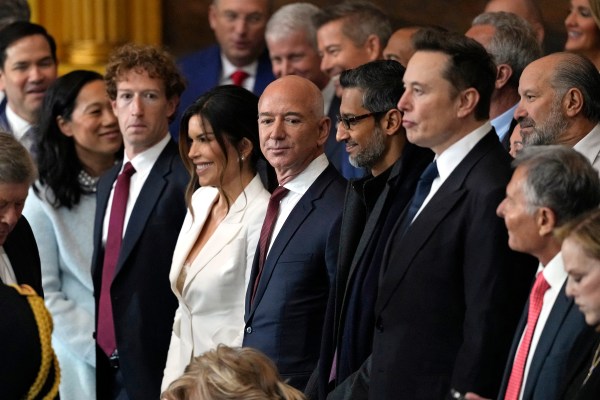



Please note that we at The Dispatch hold ourselves, our work, and our commenters to a higher standard than other places on the internet. We welcome comments that foster genuine debate or discussion—including comments critical of us or our work—but responses that include ad hominem attacks on fellow Dispatch members or are intended to stoke fear and anger may be moderated.
With your membership, you only have the ability to comment on The Morning Dispatch articles. Consider upgrading to join the conversation everywhere.